FAO, in collaboration with the Ministry of Fishing and the Blue Economy and the National Network of Women in Fisheries, distribute post-harvest materials and equipment and provide training to women’s associations in Madagascar
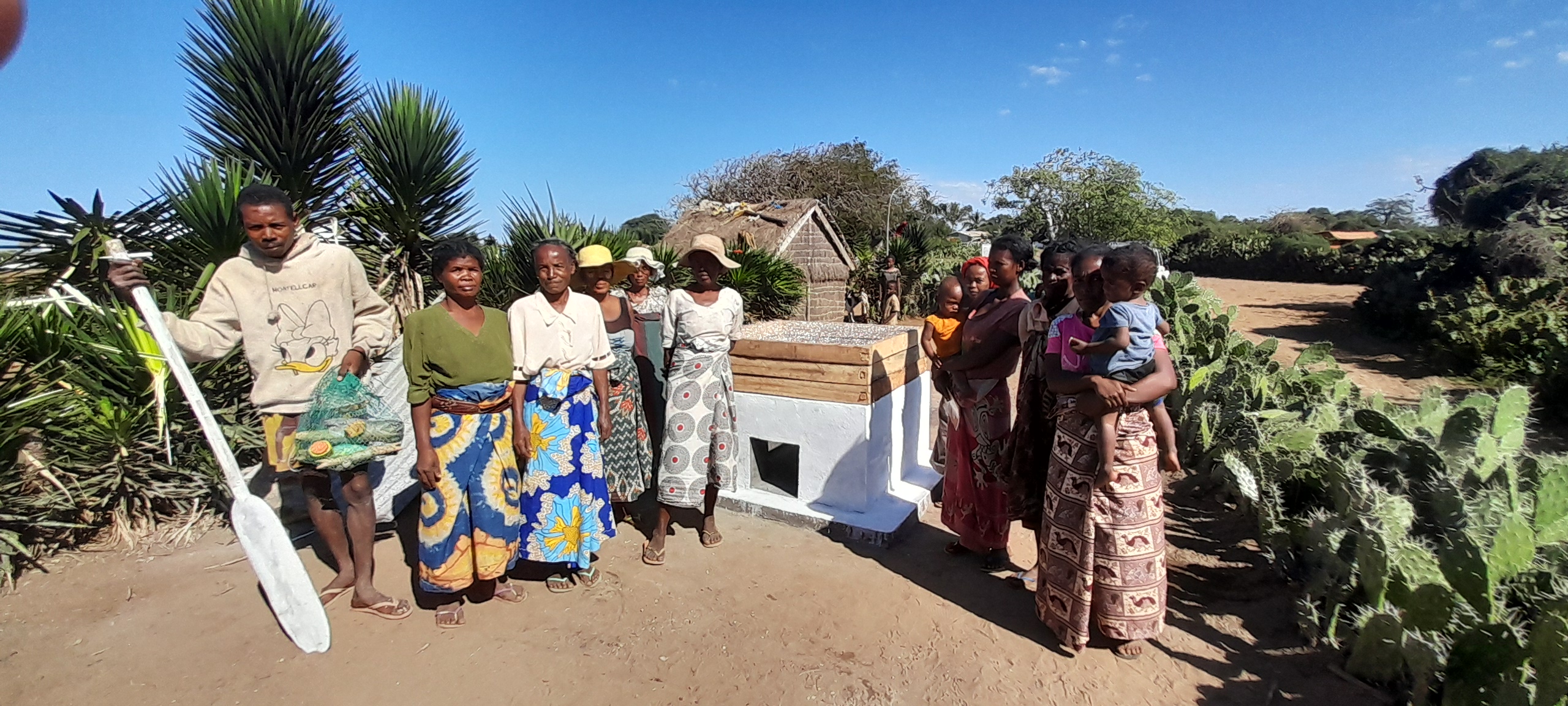
©FAO/Rindra Rasoloniriana
Small-scale fisheries activities play an important role in securing food, nutrition, and livelihoods for millions. In 2022, it was estimated that nearly 242,000 people in Madagascar were directly involved in the small-scale fisheries sub-sector across approximately 2,500 registered fishing villages, with a reported production of around 90.000 tons (FAO, 2024). Women account for 57 percent of those involved in post-harvest activities and 21 percent in harvesting (fishing) activities (FAO, 2024).
To better assess the capacities and needs of women's associations working in fisheries, a study was carried out by FAO in the Androy, Anosy and Atsimo-Andrefana regions in the south of Madagascar. The study found that women often purchase fish products at landing sites directly from fishers, which are usually quite far from the markets. This distance requires women to walk for several hours, leading to the deterioration of the products, particularly in the Androy and Anosy regions.
Based on these findings, FAO, in collaboration with the Ministry of Fishing and the Blue Economy (MPEB - Ministère de la Pêche et de l’Économie Bleue), supported women's associations in these regions by proving training and equipment for preserving, handling and processing fish products. This equipment includes coolers, isothermal containers, Chorkor ovens, fish drying racks, and various small items such as knives, stainless steel bowls, buckets, and scales. All this was done within the framework of two global FAO small-scale fisheries projects, namely the Creating an enabling environment for securing sustainable small-scale fisheries and the Implementing the Small-Scale Fisheries Guidelines for gender-equitable and climate-resilient food systems and livelihoods.
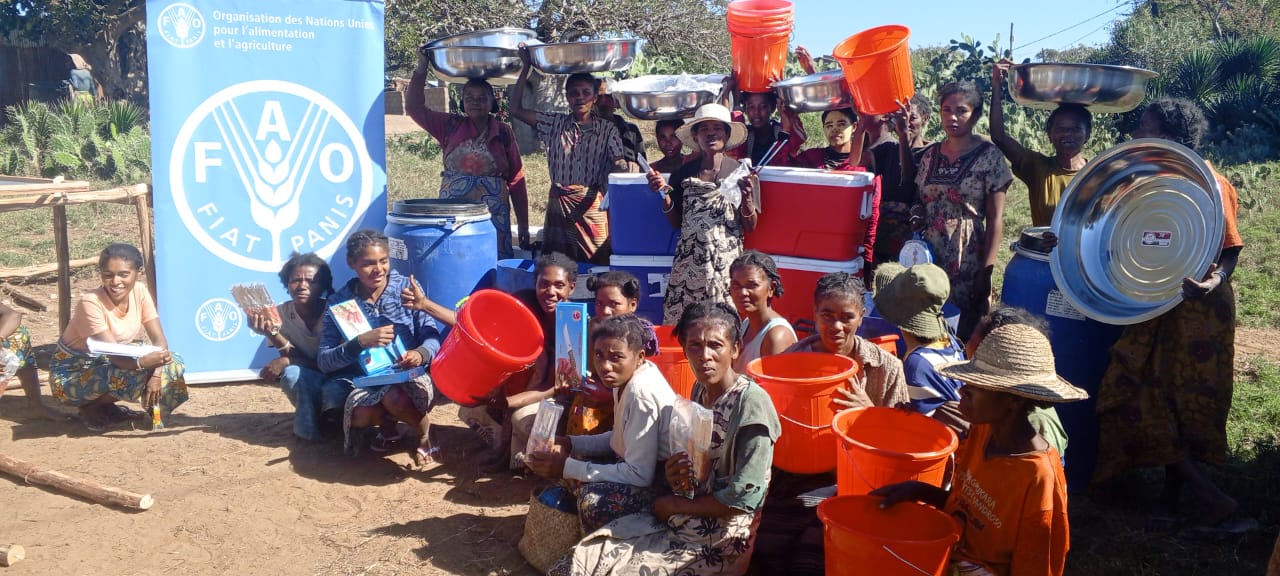 Material distribution in Ambovombe.
Material distribution in Ambovombe.
| This equipment will enhance food safety by keeping fish products fresh until they reach the market. The products will remain available for a longer period at the market, making it easier for consumers to access them, reducing food loss, and increasing women’s earnings. “The materials provided by the project, especially the fish smoking oven, will help improve our sales because the fish will not spoil as quickly. We won’t need to sell in a rush, and we can hopefully get better prices” said Justine Tanantsoa from the Miaramilomano Association in Ambonaivo.
The women’s associations will also be able to choose which fish to process and when, ensuring that fish products are always available at the market. For example, during bad weather when fishing activities are suspended, women can sell processed products such as salted and smoked fish, providing a constant and stable source of income throughout the year. Additionally, the products will be able to reach more distant markets securely. Smoking fish will allow us to keep the fish at home for many days, or even weeks, and so provide a source of income when landed products are scarce. However, we need support on the smoking technique to ensure that the products are of good quality". Solaire Marovavy, president of a women's association in Tsirangoty village, in the Region of Androy. |
The distribution of this equipment was accompanied by training on fish handling and processing. It had been identified that women processing fish products used a very rudimentary techniques, often resulting in poor quality products. To ensure the proper use of the equipment, training was considered essential and was provided both before and after the distribution of the material.
For the eight Chorkor ovens that were constructed, the women associations and other community members were directly involved in the process to ensure ownership and sustainability of these new smoking systems. The materials needed for the ovens were distributed to the villages, and training provided on how to construct and use the ovens through capacity building activities. In total, 129 women from 61 different women’s associations were trained.
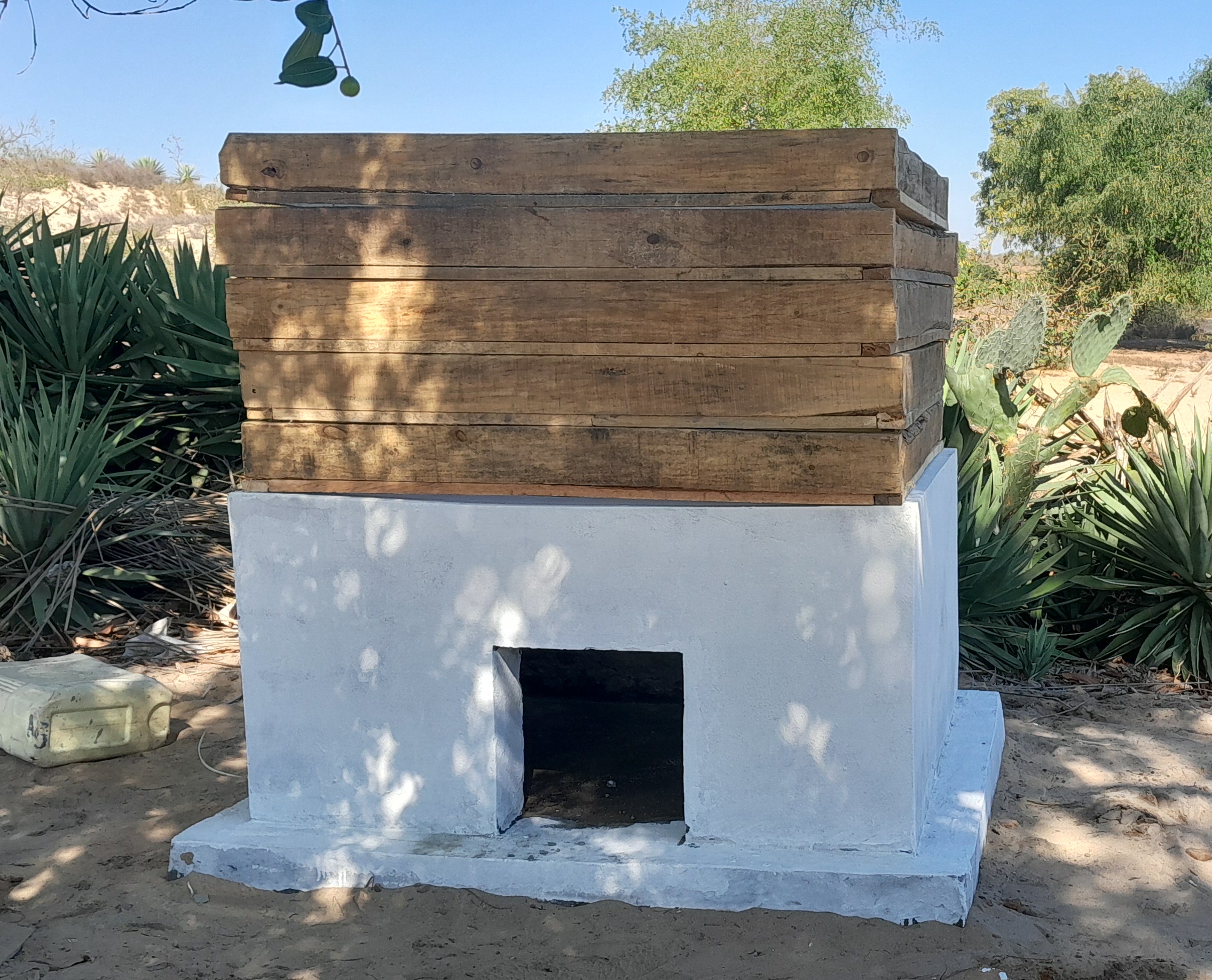 | 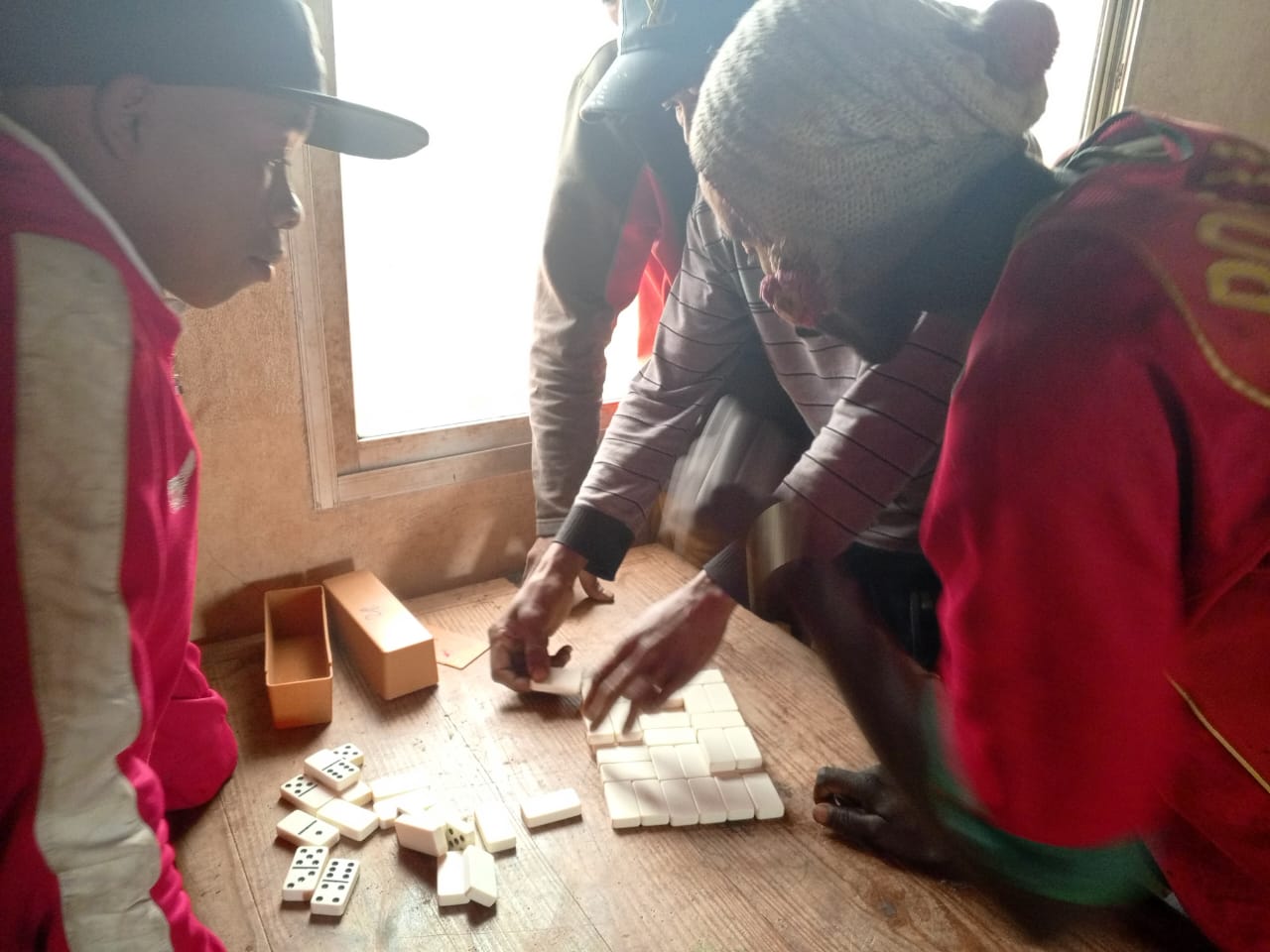 | 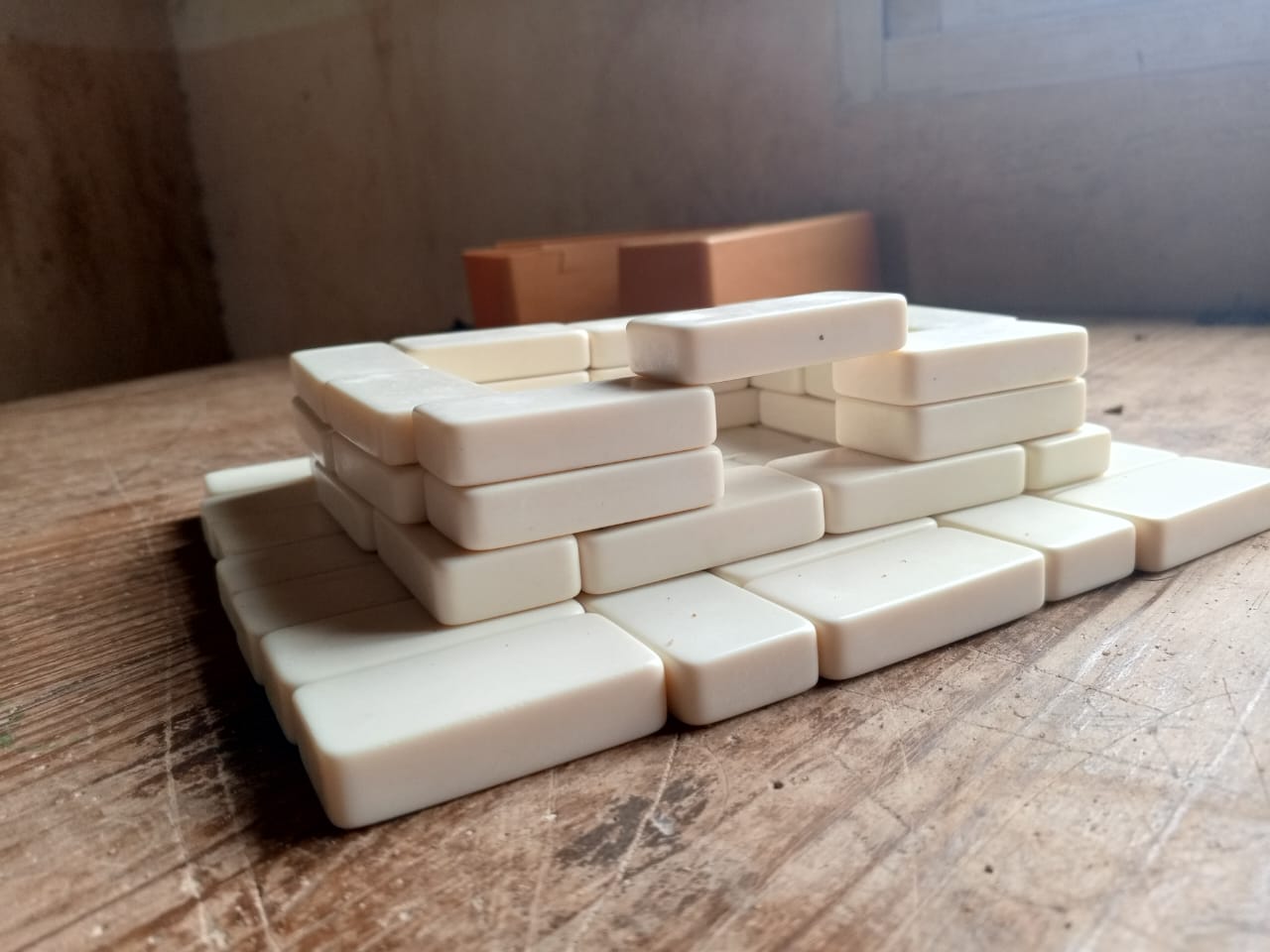 |
Fig 1 – Completed Chorkor oven with trays to dry fish on top. Fig 2 and 3 – Theoretical training on construction and maintenance of ovens.
The goal is for the women to maintain these improved ovens themselves, and if any issues arise in the future, they will be able to oversee the repairs based on the principles taught during the capacity-building activities. Additionally, practical training sessions will be conducted under the new small-scale fisheries project “Implementing the Small-Scale Fisheries Guidelines for gender-equitable and climate-resilient food systems and livelihoods – Phase 2 to optimize the benefits of these ovens.
"FAO and the Ministry of Fisheries have supported us with equipment for processing and handling fish. Given our remoteness from the city of Ambovombe, this equipment will be very useful and helpful. We therefore engage to use them properly and to respect them to ensure their durability".
Josiane Adaroe, President of an association in Volankira Ambatoabo (Androy Region)
As part of this ownership and sustainability of the equipment, a management committee has been set up to manage the equipment. This committee will oversee the equipment, with the support of the National Network of Women in Fisheries in Madagascar (RENAFEP - Réseau National des Femmes de la Pêche à Madagascar), which already has well-organized structures, particularly in the Ranobe Bay area of the Atsimo-Andrefana region.
Learn more:
Importance de la petite pêche en termes de sécurité alimentaire à Madagascar
Value chains, post-harvest and trade

 Justine Tanantsoa from Miaramilomano in Ambonaivo and Rosette Holaza from Miraisaina Association in Erakoka Anjatoka.
Justine Tanantsoa from Miaramilomano in Ambonaivo and Rosette Holaza from Miraisaina Association in Erakoka Anjatoka.